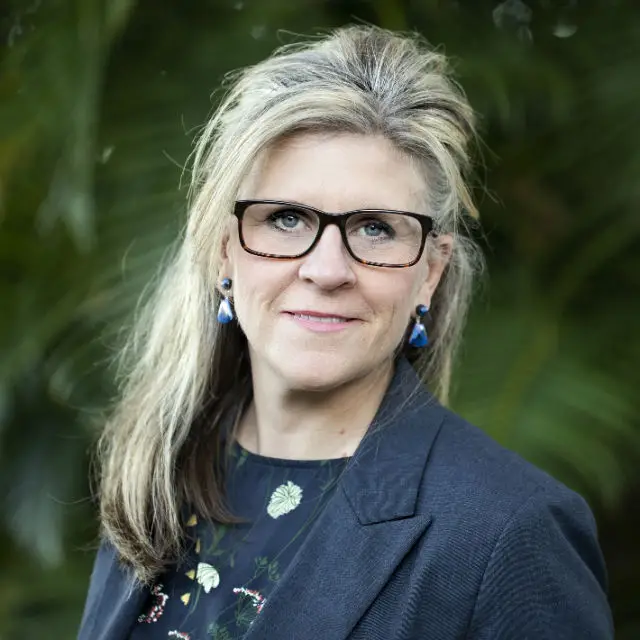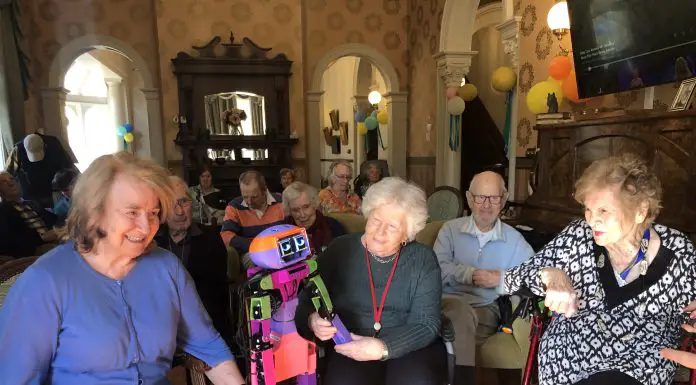In this guest post, Karuna Hospice CEO Tracey Porst shares a poignant reminder of the conversations and choices surrounding the end of life. Ms Porst makes special mention of the role of Palliative Care Services and the evolving approach being taken to help people of all ages manage end of life.
May 22 – 28 is Palliative Care Week.
Talking about death and dying is still strangely a taboo subject in Australia. No one in the “prime of their life” thinks to sit down and discuss with their family how they want to be treated at the end of their life, but It’s an important discussion that we should all have.
As we look toward Palliative Care Week (May 22-28) those of us who work in the sector hope it will spark more open conversations about what happens at the end of life.
The recent tragic death of Australian Olympic gold medallist Dean Woods from cancer at 55, reminds us that we never know what lies ahead.
Woods, who was in palliative care for his final week, was prepared. He went so far as to pre-record his own eulogy, which was played at his funeral. In it, he said:
“I’m well prepared, even though I’m in the box in front of you. I’ve had a pretty extraordinary life, it’s pretty hard for anyone to document that in a simple form, so the best person to do it is me.”
Aussies are only too happy to talk about how we want to live – sea changers, tree changers, grey nomads – but we get tongue-tied expressing how we want to die.
In many eastern cultures, it is the norm to be born at home and die at home, cared for by family.
Sadly in Australia, not everyone has the option to choose to die at home.
All Australians deserve to be able to die at home if that is their final wish and it is important that palliative care resources are available.
It’s not unachievable. We can grant that wish by ensuring funding that acknowledges in-home Palliative Care supports not only the physical and psychosocial care but supports the unskilled carer, which is usually a family member, who provides 24-hour care to their loved one.
This ongoing call for funding is a fact acknowledged in the National Palliative Care Strategy (2018) and underscored in the recommendations of the Royal Commission into Aged Care Quality and Safety.
Promoting opportunities for patients at the end of life to be able to choose where they want to die is central in Palliative Care. Although there is an expectation that in most instances people would prefer to die at home it is not always possible for many reasons. This does not mean hospitalisation is inappropriate as what constitutes quality palliative care wherever and however that may be, requires a team approach utilising health professionals, carers, family, and friends.
It’s what Karuna Hospice Services has devoted itself to for 30 years now. Our devoted and trained staff are provided free to enable patients to live out their days with friends and family by their side.
Importantly we are dedicated to encouraging conversations within the community to talk confidently about dying and death and discuss advanced health planning to ensure choices are communicated and documented.
Specialist Community Palliative Care Services such as Karuna Hospice Service offers the choice to be cared for and, if able, to die at home.
With limited government funding, it is only through the help of generous donors, that we can ensure our service continues and more Queenslanders can have access to nursing, counselling, spiritual and social support services, outside the hospital environment.
We need to ensure palliative care in homes remains normal.
If you think palliative care is something only for the elderly, you’d be wrong. We have helped families of young mothers and fathers come to terms with a terminal diagnosis or grandparents who’ve been told their cancer has returned.
We care for many people who are under 65 without access to additional community support services to enable them to stay home. It breaks your heart every single time, but I must tell you, those goodbyes were made a little gentler when they were able to take place at the place of their choosing.
Although these conversations can be difficult or emotional having skilled professionals and caring staff can help families work through these difficult times. Quality individualised in-home palliative care expertly manages a patient’s medical needs, enhancing their quality of life in their dying days.
We cannot avoid the reality that people who have a palliative condition will face the choice of Voluntary Assisted Dying when it becomes available to Queenslanders in January 2023. Its legal, ethical, and social policy relevance will create continuing discussions within the community and throughout all health sectors including Specialist Palliative Care Services.
Those of us who understand the benefits of an appropriate and timely palliative care service believe it is vital to continue to advocate for easier accessibility and recognition of its value as an end of life choice.
Karuna will continue its purpose of providing high-quality Palliative Care and encouraging the community to recognise death as an inevitable part of life and not be afraid to discuss it openly – both life and death preferences in pursuit of a meaningful quality of life.
Not all of us are blessed with a choice about how and where we spend our last days, but those fortunate enough to be able to have their say deserve to be heard.










